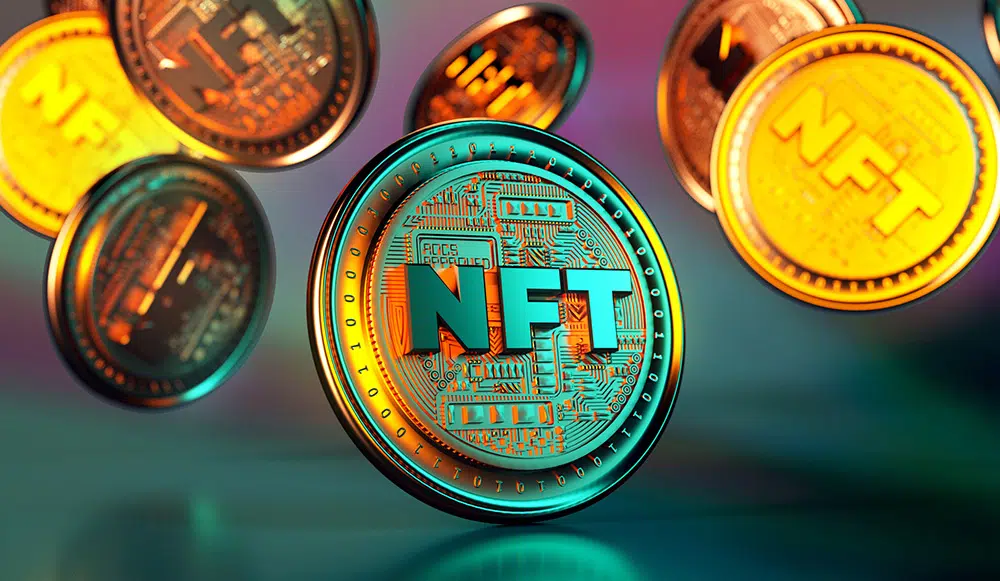

If you do not already know what an NFT is, you will soon. The NFT market has exploded recently and is predicted to grow even more in the coming years. Like any other kind of investor, however, NFT traders must abide by federal laws applicable to financial transactions. Violating those laws can lead to arrest and prosecution as evidenced by the first-ever federal prosecution for NFT insider trading recently filed in New York’s Southern District. In that case, the defendant is facing wire fraud and money laundering charges that each carries up to 20 years in prison if convicted.
What Are NFTs?
Non-fungible tokens, commonly referred to as “NFTs,” are digital assets that represent real-world objects like art, music, items you can purchase in video games, and videos themselves. NFTs are bought and sold online, usually using cryptocurrency, and are typically encoded with the same underlying software as many cryptocurrencies. “Non-fungible” means the token is unique or, in other words, cannot be replaced or exchanged for something else. A painting is non-fungible because if you replaced/exchanged it with another painting you would have something completely different with a different monetary value. A Bitcoin, on the other hand, is fungible because if you exchange one Bitcoin for another Bitcoin you effectively have the same thing, with the same value. NFT collectibles can be just as valuable as their physical counterparts. NFTs are just the digital version, meaning you own a digital file instead of a physical object. In 2021, the NFT market was worth a shocking $41 billion, according to Markets Insider.
How Are NFTs and Federal Financial Crimes Related?
Federal financial crimes are nothing new. In fact, “white collar” crimes, such as insider trading, fraud, and money laundering, have been around for decades. What is new is the idea that NFTs and federal financial crimes are related.
The recently filed New York case charged 31-year-old Nathaniel Chastain, a former product manager at the online marketplace OpenSea, with one count of wire fraud and one count of money laundering. The charges are related to an alleged scheme to commit insider trading in NFTs “using confidential information about what NFTs were going to be featured on OpenSea’s homepage for his personal financial gain,” according to a CNBC article.
The indictment filed in the case alleges that Chastain used his position with OpenSea to gain and profit from “insider” knowledge. Part of his job was to decide which NFTs would be featured on the OpenSea homepage, a coveted position for an NFT that often increased the value of the chosen NFT and/or other NFTs by the same creator. Chastain allegedly used that insider knowledge to purchase NFTs prior to their publication on the website and then resell them after publication for two to five times the original purchase price. Dozens of these transactions were accomplished using cryptocurrency held in anonymous digital wallets.
For those not familiar with NFTs or cryptocurrency, the allegations are similar to someone having insider information that will directly impact the value of a stock and using that knowledge to make a profit buying or selling the stock prior to that information being made public.
What Is Federal Wire Fraud and Money Laundering?
Although the allegations are centered around “insider trading,” Chastain was charged with wire fraud and money laundering. Interestingly, federal law does not specifically prohibit insider trading; however, there are several laws that make various types of fraud illegal. As such, most insider trading cases are charged using one of the various fraud statutes. In this case, Chastain was charged with federal wire fraud, defined as using “any scheme or artifice to defraud” someone through the use of interstate wire communications, such as a phone or the internet. The fact that the NFTs were promoted, purchased, and sold using the internet puts the transactions firmly within the reach of the federal wire fraud statute.
Money laundering refers to a process intended to obscure the source of money obtained by a defendant. In colloquial terms, “cleaning dirty money.” Several federal statutes apply to allegations involving money laundering, including the Money Laundering Control Act, the Bank Secrecy Act, the Patriot Act, the Anti-Drug Abuse Act, and the Intelligence Reform and Terrorism Prevention Act. In the Chastain case, the use of cryptocurrency and anonymous wallets to conduct the financial transactions at issue will likely be introduced as evidence to support the allegation that he was trying to “launder” the money he earned from those transactions.
What Does the NFT Prosecution Mean for Anyone Trading in NFTs?
Until now, NFTs appeared to fall into a no-man’s land as far as federal regulation and enforcement were concerned. NFTs are not securities nor is cryptocurrency legally considered currency, despite the name. That left everyone to wonder if federal law enforcement agencies and prosecutors would pursue insider trading of NFTs. The Chastain case makes it clear that the answer is “yes,” insider trading can apply to NFTs. As U.S. Attorney Damian Williams said, “NFTs might be new, but this type of criminal scheme is not. Today’s charges demonstrate the commitment of this Office to stamping out insider trading — whether it occurs on the stock market or the blockchain.” Given that both federal wire fraud and money laundering carry up to a 20-year prison term, anyone engaged in buying and selling NFTs needs to be aware that using insider information could subject them to accusations of federal wire fraud, money laundering, and/or additional federal financial crimes.
Get Help from Experienced Federal Financial Crimes Defense Attorneys
If you are concerned about NFT transactions you conducted, have reason to believe you are the target of a federal financial crime investigation or have already been charged with insider trading related to NFT transactions, you need to speak to an experienced federal financial crimes attorney right away.
At Haas Law, our experienced federal financial crimes defense attorneys have the experience and resources to handle cases involving this rapidly changing area of the law. We will aggressively use our knowledge and skills to protect you and your future.
Call us at 407-755-7675, chat with us online, or submit our online form today. Because we understand that time is of the essence when federal law enforcement authorities are investigating you, our calls are answered 24 hours a day, allowing you to schedule an appointment as soon as possible to discuss your legal options.
